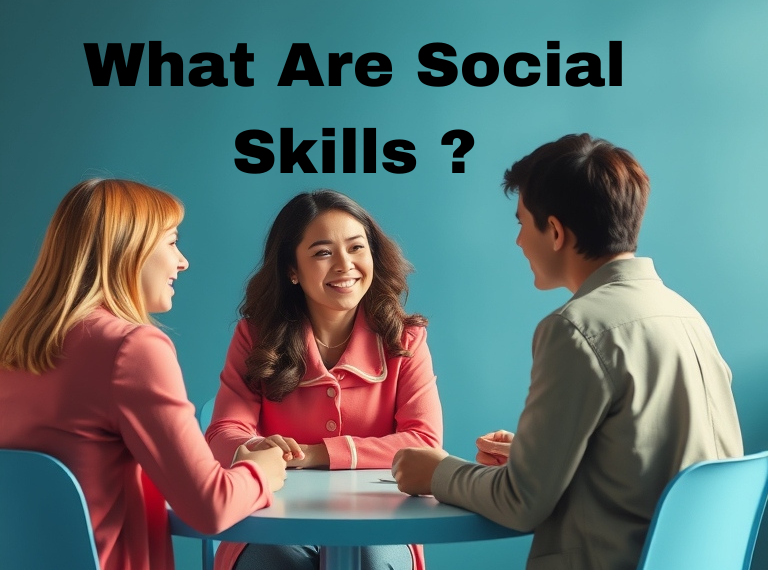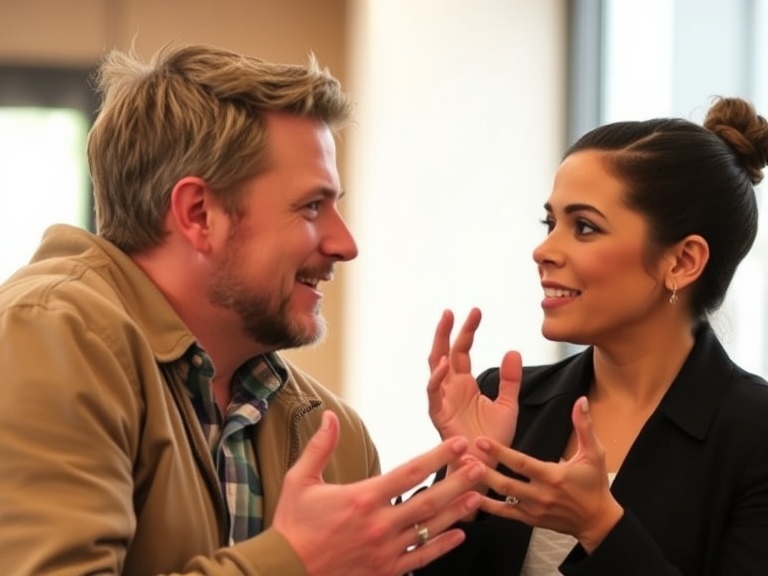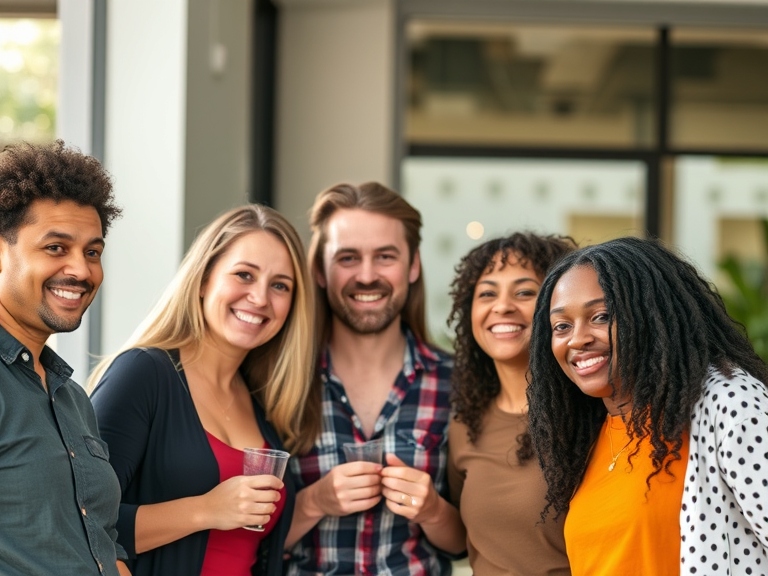
What Are Social Skills: Why They Matter in Every Aspect of Life? Be it personal or professional, social skills definitely affect every dimension of the individual’s life. The future might demand a communication skill set that helps build better relations or simply deals with the different social situations of the individual, and one is expected to be aware of social skills and their enhancement.

What Are the Social Skills?
Social skills include all of the communicative and interactive competencies people normally possess. They encompass a certain behavior such as all verbal and nonverbal communications, listening actively, and being empathetic. Social skills help us in building and sustaining relationships, handling conflicts, and conveying messages in ways that other people can accept. They come basically in two wide identified categories.
The first one is called verbal, including the ability to express thought and ideas by means of sound speech; the other one is termed as non-verbal-that is, body language, facial expressions, and even the tone of the voice used. They both are important when it comes to establishing a strong and valuable relationship with others.

Understanding Social Skills
The article discussed and explained the different approaches by which individuals can define social capabilities in terms of social performance; and explored the need for the very skill areas and some of the practical development strategies focusing on such skills. At the end of the study, you will be better equipped with knowledge regarding social skills together with the means to build these for the success one is looking for in most spheres of life.
In these times, social skills are more relevant and important than at any other time in history for all the following reasons:
1 Building Relationships
Socially skilled people find it easy to get along with others; they form friendships and keep people within healthy boundaries-these can be with family, friends, or even with colleagues. When you have effective communication, then it means you have laid the foundation on which every relationship rests for success.
2 Career Advancement
Social Skills in my opinion include networking at work, associating with coworkers, as well as handling clients.” An individual will tend towards a success zone as moving up the value chain in his profession if he communicates well, works well within a group, and solves problems destroyed using unit dynamics. Most socially well-adjusted people end up being called ‘leaders’: they also tend to get more chances for promotions and career prospects compared to others.
3 Conflict Resolution
Conflicts have space in every relationship, but being able to tame such disagreements amounts to having finer social skills. Listening skill, an empathic view, and the search for middle ground on conflicts can transform these moments into opportunities for growth and learning.
4 Mental Health and Well-being
Priya indicated that good social skills decrease feelings of loneliness and isolation. Social contact has been identified as an avenue to better mental health, added self-worth, and overall life satisfaction. People who have social support experience lower levels of stress and are better protected against revulsion.
5 Social Influence
Social skills shall always denote the art of influencing and persuading other peoples; be it selling a product, motivating a team to a particular goal, or causing a change, anything can be achieved as long as one has good social skills.

The Main Aspects of Social Skills
The aspects that make social skills social skills are very important. Some of them are most common in social skills as follows:
1 Communication Skills
Communication goes a long way in identifying the human being. It means more than just verbally communicating ideas; it includes the ability to communicate with others and to comprehend messages. Effective communication is verbal as well as nonverbal. Speaking well is not enough; one ought to be a good listener and able to respond appropriately.
2 Active Listening
Sociability requires that you speak as well as the ability to listen, and listening goes to the heart of active listening: giving full attention to the other person and receiving his or her message so as to provide an appropriate response. It is a pretty respectful way to show interest in another person’s point of view.
3 Empathize
Empathy is understanding and sharing feelings with others. When trying to bond with people, this is a significant attribute because it can bring about closeness between people. One can identify and, thus, respond positively to help someone via concern or assistance by being empathetic.
4 Emotional Regulation
To keep relationships afloat requires the keeping of a successful management of emotions in a social setting. Controlling one’s emotional reactions during more hard and stressful times is referred to as emotional regulation. It is always sticky in terms of keeping calm and collected and one’s demeanor appropriate, for example, when things go a little challenging.
5 Nonverbal Communication
Non-verbal communication includes facial expressions, body language, eye contact, and tone of voice. These often say far more than words can express. Understand your non-verbal cues and understand others’. This will make your social interactions better and easy.
6 Problem-Solving and Conflict Resolution
Socially equipped human beings manage conflicts very smoothly and constructively. The art of conflict resolution boils down to knowing the discussion-the problem, hearing all the participants involved in the process, and ultimately coming to a conclusion with a mutual solution from parties in conflict. It requires patience, understanding, and compromise.

Improvement on Your Social Skills
Development of social skills requires time and practice, but quite simply, there are ways that can make anyone socially skilled. The following are the best ways or things to do to improve your social skills:
1. Active Listening
Practice listening without interrupting. Pay attention to what the speaker has to say, ask questions if you do not understand, and summarize what they say, just to confirm your comprehension. In giving all your attention to the conversation, you are showing respect for the other person’s input.
2. Construct Your Vocabulary
A rich vocabulary means being able to express oneself better and more accurately. Read books, involve yourself in discussions, and expose yourself to some channels of communication. Practice is built to make it easier to adopt different sets of languages.
3 Ways to Improve Your Body Language
Your body language has much to say about you. More such matters include making eye contacts; standing or sitting up straight; using open gestures—all to serve a purpose of confidence and friendliness. You really are able to make yourself aware of your body language, thus creating a positive first impression.
4 Join Social Activities
Put yourself in a social situation. Go to an event, join clubs, or otherwise everything that counts as group activity. More and more you are doing this, the more comfortable and confident you get at relating with people.
5 Ask for feedback:
Get feedback on your social behaviors from trusted friends, family, or colleagues who interact with you often. That would help to shed light on those blind spots through which you don’t notice anything is wrong in the way you handle your conversation.
6 Emotional Control
The exercise of emotional control would suffice for all social success. Practice different techniques of deep breathing, mindfulness, or journaling, and all methods to release stress and control one’s emotions. This will ensure that one stays calm and composed even under pressure so that there will be an improvement in the social sphere.

SOCIAL SKILLS IN THE DIGITAL AGE
They say it is appropriate to have social skills for this century. It should all refer to virtual means and not face-to-face meetings. Social media should not only bring people exposure in the outside world but also in cyberspace. Here are some tips that will help a person be better at communicating with others through the Internet:
1. Be Clear and Concise
When online, do not forget to be clear and concise in your messages; while it is difficult to express your body language and tone through text or chat, words have to be chosen so that they become decipherable as precise.
2 Use Emojis and GIFs Judiciously
Though they help communicate feelings, such things should actually be used sparingly. Overuse, or really relying on it for your point to get across, would render it something just not easily taken seriously or understood.
3 Respect Privacy and Boundaries
As said, online interactions are more stringent when it comes to privacy and personal matters. Never ask for personal information of someone else, much less disclose your own personal information. Also, make sure that your messages do not put someone on the defensive. Check on the tone of your words when you communicate online.
4. Have Her Play a Meaningful Online Conversation.
Shouldn’t be about just scrolling through social media passively but engage in meaningful online conversation. Take a moment to comment thoughtfully on other people’s posts; you could ask them questions or let them know what you think.

Finalization
What are social skills? The broadest aspect of reading is to communicate with people better whether they be friends at work or even through the web. Social skills help you join others without making it difficult to interact and cooperate with someone. With proper knowledge of the main elements of social skills and ways to improve them, an individual is capable of maneuvering easily through social situations. Remember, it did take time, practice, and constant motivation to master the art of social skill development within themselves.
With the development of social skills, it would be a welcome statement in the level of friendships or relationships, advancements in career opportunities, and general well-being. Whether you want to be a better professional communicator or make more friends, improved social skills will reward your investment well.

